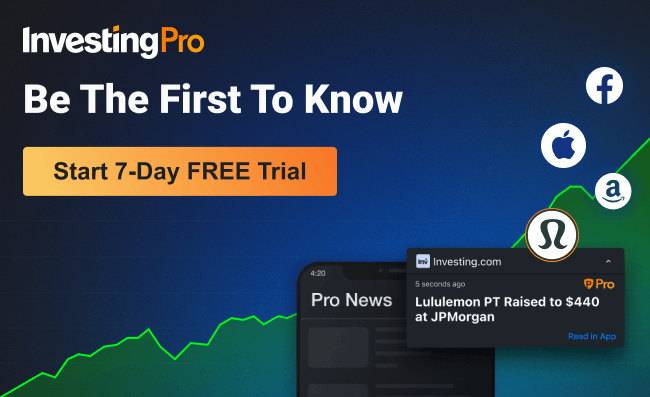This post was originally published on this site
https://d1-invdn-com.investing.com/content/picdde08f4133e561c39dffe23fd1a49443.pngInvesting.com — Here is your weekly Pro Recap on the tech headlines everyone is buzzing about from this past week: firm subscriber numbers at Netflix; Elon Musk’s about-face on advertising; sped-up merger talks between Western Digital and Kioxia Holdings; OpenAI chief’s unsettling Senate testimony; and Alibaba ‘s subpar earnings.
InvestingPro subscribers got these headlines in real-time, giving them a chance to rapidly readjust their portfolios. See for yourself by starting a 7-day free trial.
Netflix (NASDAQ:NFLX) said on Wednesday that its new $7-per-month ad-supported tier has reached almost 5 million active users per month, representing a significant increase compared to the ~1M reported by third parties.
The announcement was part of a larger presentation by management, which left analysts more positive on the company. Oppenheimer applauded the “ad tier progress,” and Evercore reiterated its Outperform rating as new updates show the ad-supported tier is “steadily gaining traction.”
Netflix also said that ad-tier now represents 25% of new subscribers in respective geographies. The company’s management told advertisers that its viewers are 4 times more likely to engage with an ad on Netflix than on the other streaming platforms.
Hot tech news like this is posted in real-time for InvestingPro subscribers. Never miss another market-moving headline.
Shares jumped 7.2% for the week to $365.36.
During Tesla’s (NASDAQ:TSLA) annual shareholder meeting, Musk appeared to decide in real-time to try advertising its vehicles after years of resisting the idea. An investor at the meeting asked about a potential advertising campaign to teach more about the full TSLA story, to which Musk responded that Tesla will try out “a little bit of advertising.”
In response to this, Wedbush said:
Tesla shares gained 7.5% for the week to $180.14.
Western Digital (NASDAQ:WDC) and Kioxia Holdings Corp are speeding up merger talks and discussing a deal structure as both companies continue to be pressured by a slump in demand for memory products, Reuters reported.
Excess inventory amid weak demand in the memory market hit both companies hard, and they believe that a single entity would be better positioned to compete against rivals like Samsung Electronics (OTC:SSNLF).
The merged entity would be 43% owned by Kioxia, 37% by Western Digital and the rest by existing shareholders of the companies, Reuters added.
Benchmark reiterated a Hold rating on Western Digital, noting, “While the devil will be in the details, due to the current depressed memory market, short-term we see modest upside from such a deal with most of the value coming from the HDD unit spin-out.”
Shares rose 7.3% for the week to $38.32.
CEO of Microsoft (NASDAQ:MSFT)-backed OpenAI, Sam Altman, said he is “nervous” about the potential for artificial intelligence to interfere with elections at a Senate panel on Tuesday – and said the U.S. should mull rules, licensing and testing requirements for AI development.
Sen. Cory Booker (D) said of AI, “There’s no way to put this genie in the bottle. Globally, this is exploding.”
In response to Sen. Mazie Hirono’s (D) mention of an AI-generated video of former President Trump being arrested, Altman said creators should make clear when an image is generated rather than factual.
Altman also said companies should be able to protect their data from being used for AI training – but that public materials on the internet should be left open for these purposes.
Microsoft shares were up 3% for the week to $318.34.
Hong Kong-listed shares of e-commerce giant Alibaba Group (NYSE:BABA) (HK:9988) sank on Friday as a slowing economic rebound and growing competition in China, its biggest market, spurred disappointing quarterly earnings.
The firm logged revenue of RMB208.20 billion ($1 = RMB7.04) for the three months to March 31, lower than analyst estimates of RMB210.3B. Its revenue for the year to March 31 also rose just 2% to RMB868.69B, its worst pace of growth since the company listed in 2014.
Alibaba’s Chinese direct sales, which make up the biggest portion of its revenue, fell 1% in the quarter, as consumer spending in China continued to struggle despite the lifting of anti-COVID measures.
Alibaba’s New York-traded ADRs were down 3.7% for the week to $83.98. Its Hong Kong-traded shares sank 1.6%.
In fast-moving markets, every second counts – and InvestingPro subscribers are always one step ahead with lightning-quick updates.
Start your free 7-day trial now.
Senad Karaahmetovic, Michael Elkins, and Ambar Warrick contributed to this report.



